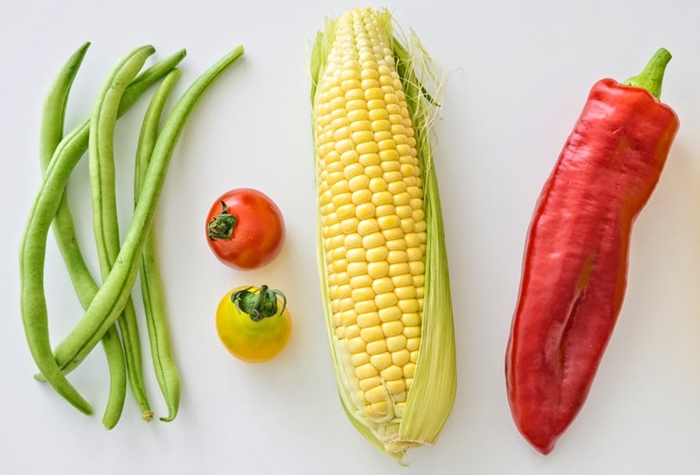Canned vegetables are often thought to be less nutritious than fresh or frozen vegetables, but studies show that this is not always true. In fact, canning preserves most of a food's nutrients.
Protein, carbs and fat are not affected by the process of canning.
Most minerals and fat-soluble vitamins like vitamins A, D, E and K are also retained. Foods high in certain nutrients are still high in the same nutrients after being canned.
Canned vegetables are harvested and packed at peak ripeness. Fresh vegetables spoil more quickly while the canning process retains their nutrients. However, since canning typically involves high heat, water-soluble vitamins like vitamin C and vitamin B can be damaged. These vitamins are sensitive to heat and air in general, so they can also be lost during normal processing, cooking and storage methods used at home.
Canned Vegetables vs. Frozen Vegetables
The good news is that whether it’s canned, fresh or frozen varieties, nutrition is balanced between them. While the canning process may damage certain vitamins, amounts of other healthy compounds increase. For example, tomatoes and corn release more antioxidants when heated, making canned varieties an even better source of antioxidants. Changes in individual nutrient levels aside, canned foods are good sources of important vitamins and minerals.
Just a precaution before buying canned veggies, observe the sodium content, calories and sugar. Always compare the nutritional facts at the back portion of label. Look for low-sodium versions of canned vegetables and rinse before using them to lessen the overall sodium content.
More affordable and practical canned, fresh or frozen vegetables are ideal for quickly-steaming, sautéing and microwaving (low temperature). The way you cook your veggies affects the nutrition you get. Avoid prolonger cooking times at a high temperature for your vegetables as it diminishes the nutrient value.
Suggested Canned Vegetables
Canned Pinto Beans
These are good source of folate and manganese, high in protein and vitamin B1 as well as a slew of other minerals. There isn’t much difference regarding nutritional value of canned and fresh pinto beans. You can make a traditional soup (ditch tortilla if dieting) with chicken broth, tomatoes, chilies, avocados (healthy fats), and cilantro, lime juice. At the end of cooking time, add a can of pinto beans.
Canned Artichokes
Canned artichokes are low calorie yet nutrient dense vegetables that are low in saturated fat and cholesterol. An excellent source of fiber with a good amount of folate and magnesium, these humble vegetables are also high in antioxidants.
Canned Tomatoes
Canning tomatoes has the added benefit of making them higher in the antioxidant lycopene than its fresh counterpart. Canned tomatoes are highly convenient with a stronger tomato flavor making them a handy kitchen staple anytime you need to whip up a hearty and healthy dish.
Canned Corn Kernels
Regardless if it is canned, frozen or fresh, canned corn is a nutritious and tasty vegetable that adds value to any recipe. A ¾-cup serving of canned corn serves you a 3.2 grams protein.
Eating canned vegetables has their benefits in the kitchen. Taste, readiness, and shelf life make them nutritious ingredients to have on hand. While fresh vegetables are ideal, canned vegetables do not lag behind in nutritional value. For some vegetables, like tomatoes, the canning process increases the availability of certain nutrients. Keeping a good variety of fresh and canned vegetables handy is the way to go, without needing to pick one for the other.
sources:
www.onegreenplanet.org/thehealthiestgrainstoincludeinyourdiet
http://www.livestrong.com/article/412031-is-canned-food-healthy/
http://healthyeating.sfgate.com/benefits-canned-vegetables-6899.html
https://recipes.heart.org/Articles/1007/Fresh-Frozen-or-Canned-Fruits-and-Vegetables-All-Can-Be-Healthy-Choices
http://www.fitday.com/fitness-articles/nutrition/healthy-eating/canned-vs-fresh-fruits-and-vegetables.html
http://www.foxnews.com/health/2011/03/24/best-canned-foods.html





